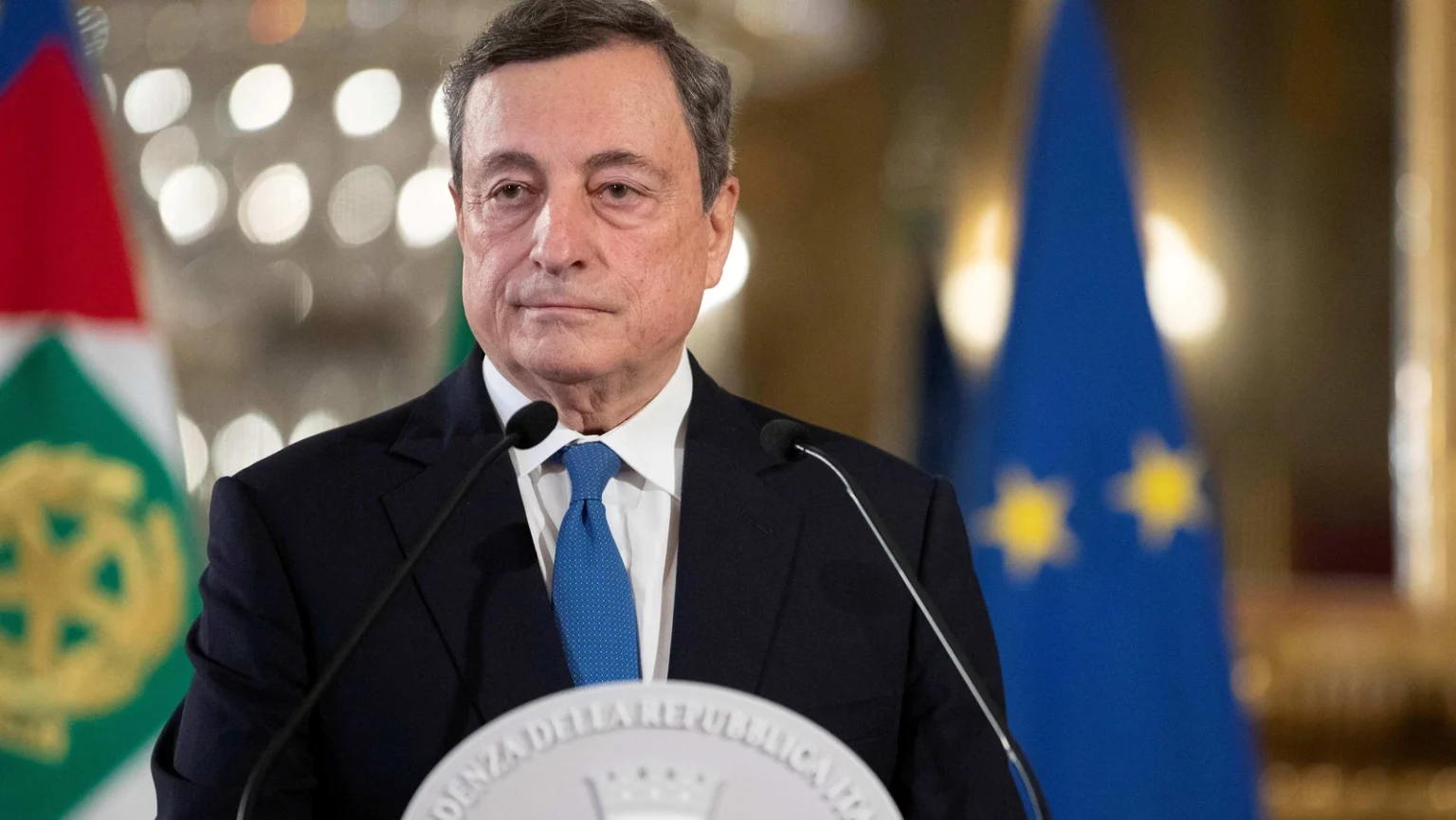Italy’s Prime Minister Mario Draghi finally resigns after three parties refuse the Trust Vote.

Italy’s Prime Minister Mario Draghi resigned on July 21, Thursday, after the three key coalition parties extracted their support from his government.
He turned in his resignation announcement to Italian President Sergio Mattarella.
Draghi had served as a Prime Minister for an unelected period of one and a half years. As the head of the European Central Bank, he earned the nickname Super Mario for how he handled the eurozone crisis. He was appointed to lead Italy through the pandemic and economic recovery last year, supported by a sizable EU package contingent on significant reforms.
He originally put up his resignation idea a week ago when a populist party in his broad coalition refused to back his economic plan, sparking a political crisis.
President Mattarella requested him to remain in the position, and Draghi said to the upper house of parliament on Wednesday that he would do so provided all parties were willing to support a powerful, united government with a “new pact of trust.”
Draghi’s coalition disintegrated on Wednesday when three of his key allies rejected a vote of confidence he convened to try and put an end to disagreements and revive their rocky relationship.
Sergio Mattarella, the President, must now guide the country out of the situation. Political experts anticipate that Mattarella will call early elections for September or October and dissolve the legislature.
The political unrest has upended months of tranquilly in Italy; during that time, Draghi helped develop Europe’s resolute response to Russia’s invasion of Ukraine and strengthened Italy’s position on the financial markets. Until then, Draghi might continue serving as the government’s leader.
Political turbulence has upended months of stability in Italy; throughout that time, Draghi strengthened Italy’s position on the financial markets and contributed to Europe’s strong response to Russia’s invasion of Ukraine.
When Draghi made a brief appearance in the lower house of parliament on Thursday, parliamentarians warmly applauded him.
The far-right League and the centre-right Forza Italia seem to be the parties that stand to gain the most from the current political situation, and both of them ignored Mario Draghi in the crucial vote on Wednesday night.
The far-right Brothers of Italy (FDI) party, whose leader Giorgia Meloni is rumoured to be a potential Prime Minister, is now leading the polls. She has frequently urged for early elections over the past week despite not being a member of the unity government.
As the alliance collapsed, anxious investors were closely observing. A measure to relieve pressure on the bond markets for heavily indebted eurozone members like Italy was scheduled to be unveiled by the European Central Bank on Thursday.
The spread, which calculates the difference between Italian and German 10-year government bonds, climbed to 215 points by the market’s close on Wednesday.
After plunging the day before as well, the Milan stock market fell another 2% on Thursday.
Those who backed Draghi had issued warnings that a fall in power may deepen social problems during a time of high inflation, delay the budget, jeopardise EU post-pandemic recovery money, and send nervous markets into a spiral.
President Mattarella stated that his administration will continue to function in order to manage current problems, but he did not specify what would come next. Elections that were scheduled for the first half of 2024 will likely be moved up to October.













